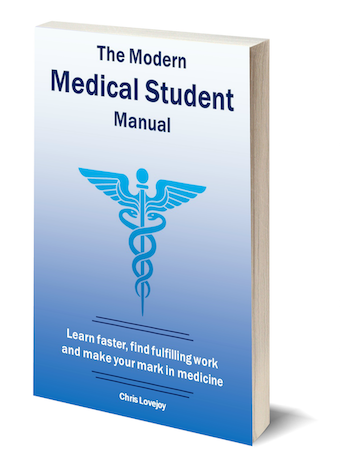Commanding Clearer Communication (Part 1)
“The scan showed it is something sinister”, the consultant explained. “We think probably the best is to let you be.”
The lack of comprehension was evident on the elderly gentleman’s face.
“Alright.” The consultant said, as he got up and left the room.
The patient had metastatic gastric cancer. He had been discussed in the gastroenterology MDT (multi-disciplinary team) meeting the previous day. Based on the severity of the cancer and its widespread dissemination throughout the patient’s body, they had decided that surgery was futile.
I knew this, but the patient didn’t. And I didn’t feel that the consultant’s explanation had made it any clearer.
I was the only other member on the team that day. It was up to me. If I didn’t go back and explain the diagnosis and options going forward, the patient would be anxious and confused for days.
I went back at the end of the ward round. The patient’s family were now present, also anxious and confused. It was still my first month on the job. This was going to be challenging…
The ability to communicate well, through writing and orally, are fundamental transferrable skills which can help in medicine and other areas of life. They can also be enjoyable in their own right. Oral communication is important, as demonstrated above. Interaction with patients is a major part of practising medicine and can often be challenging. Good team work also relies on effective communication. Within medicine, writing is an important medium for sharing ideas both within the medical community and with members of the public.
One of the best ways to develop oral communication at medical school is through teaching. You must explain things in ways that other people will understand and adjust your explanation to the audience. This is also the case when you explain things to patients, communicate with other medical professionals and even to explain things to yourself. Other benefits include consolidating your learning (there is nothing like an eager student asking probing questions to test your own understanding) and the opportunity to earn money. Other ways to develop oral communication include public speaking and debating.
The best way to develop writing skill is through goal-orientated writing and feedback. Ways to obtain this as a medical student include essay prizes, writing freelance articles and blogging. Other benefits include the possibility of contributing to others with what you write, earning money and CV points plus unexpected opportunities.
Oral communication in healthcare
Developing the ability to communicate well with patients, relatives and other members of the team is an important part of becoming a great doctor. Communication can even have an impact on patient outcomes. Danielle Ofri describes the following study in her book “What Patients Say, What Doctors Hear”:
‘A group of about 100 patients undergoing abdominal surgery were studied. The night before the operation, the anaesthetist visited each patient to explain the surgery and anaesthesia. For half the patients (randomly selected), the anaesthetists added in a twenty-minute discussion about post-op pain. Patients were told that pain was a normal part of the process and that it was caused by muscle spasms. They were told where the pain would likely be located, when to expect it and how long it would last…
… The group with the extra discussion needed half the amount of pain relief medication that the control group needed. The real shocker was that these patients were discharged from hospital 3 days earlier than those in the control group. A typical day in hospital costs more than $4,000 dollars, so this was a decidedly low-tech intervention that saved more than $12,000 dollars and spared patients many days of pain and misery.’
However, as a medical student the opportunities to develop effective communication skills directly are limited. There are limits to how much can be learnt through observation and simulation.
You won’t be asked to discuss with occupational therapists or physiotherapists about whether a patient can be discharged. You won’t be asked to update family members on a patient’s progress since admission. You won’t be asked to inform a patient of their cancer diagnosis. Once qualified, you will be asked to do all the above and much more.
The transition from medical school to qualified doctor requires you to adapt and no amount of preparation at medical school will stop this from being the case. However, there are approaches that can be taken at medical school which will make the communication aspect of this transition smoother. Broadly, this involves improving both general and medicine-specific communication ability.
General ability can be developed through any activity which involves conscious effort towards good communication. One of the best ways to develop oral communication at medical school is through teaching, which I will explore in depth in this chapter. Other examples are debating and public speaking, which can also increase clarity and confidence.
Medicine-specific communication skills are often directly taught as part of the medical course. They include sessions on ‘history-taking’ or ‘explanation and planning’ which may involve practising with actors or with real patients. Learning these skills in isolation is an example of the deconstructing skills approach outlined in Chapter 3. It is important to get practice integrating these skills, although for the reasons described earlier this can be difficult as a student. Despite the limitations described above, get as much practice as possible by proactively talking to patients and other members of the healthcare team.
The greater the level of competence achieved in these skills, the easier it will be to transition from being a student to being a qualified doctor.
Learning Through Observation
Although it is not possible to fully learn a skill without doing it, a lot can be learnt from active observation. An excellent GP gave me the following advice:
“Find a good role model. Observe them; what is it that they say? What is it that they do? Little things can make a huge difference. Notice doctors that make you think ‘I never want to be like that’; What is it that they said and did which had a negative impact on patients?”
Further resources
For further reading about communication in healthcare, see the following:
What Patients Say, What Doctors Hear by Danielle Ofri uses real-life stories to explore of the challenges of doctor-patient communication and considers how we can overcome them.
Skills for Communicating with Patients by Jonathan Silverman is a more systematic, textbook-style approach to learning communication skills for people who want to delve deeper into the theory.
Learning to teach well
As well as helping you to develop good oral communication, teaching others is an important role of a doctor. As a medical student, you depend on doctors for many aspects of your medical education and it won’t be long before you are in their position teaching students and doctors more junior than you.
I remember the anxiety I initially felt at the prospect of having my knowledge probed by intelligent and inquisitive students. What if they asked me a question I couldn’t answer? What if I suddenly forgot everything I was going to say? You may have similar fears but remember that doing anything outside your comfort zone stretches you as a person. With practice, this anxiety will reduce.
Regardless how you feel about teaching, I would highly recommend gaining at least ten hours of contact-time. Ten hours will enable you to understand the format, overcome initial anxieties and start to develop your own style. This will give you a greater appreciation of whether it is for you.
One easy way to acquire ten hours of experience is by finding a student to tutor. I consider the practicalities of this below. However, there are many alternatives, from teaching groups of medical students to volunteering at a local school.
You may find a passion for teaching after overcoming the initial anxiety as I did. Even if you don’t, you will have expanded your comfort zone, gained some teaching skill and earned some money at the same time.
Becoming a Tutor
What should I tutor?
The two most common things to tutor are academic subjects (such as GCSEs or A-Levels) or tutoring for university medical admissions (UKCAT or BMAT, interview preparation and other parts of the application). You could also teach a skill, such as playing a musical instrument, chess or a sport. For initial teaching experience, I would encourage starting with GCSE or below or an admissions test that you performed well on.
Finding students
There are many different ways to go about finding students. The easiest way is to sign up for a tutoring agency to advertise your services. The downside of this is they will take a cut (typically 10-20%).
I won’t list websites here as it is location-dependent and I don’t want to endorse any particular organisations. However, there are stacks of companies for tutoring subjects or for tutoring medical admissions.
The alternative is to advertise yourself. You can do this via the internet with a personal website or through a freelancing agency. Again, there are loads of websites for doing so which are also location-dependent.
You can also do it in person. Opportunities may be available with the friends of relatives or friend’s friends. Think about people you know of the appropriate age/subject and enquire. You can also advertise your services in the local area.
Further resources
If you are interested in teaching, two good books on this subject are:
Surely You’re Joking, Mr Feynman, which is a collection of entertaining short stories about Richard Feynman, widely regarded as one of the best physicists and best teachers of the 20th century. Many great insights about teaching are scattered throughout the book.
Teaching What You Don’t Know by Therese Huston, in which the author draws on experience teaching university students to tackle common problems such as what to do when you don’t have a clue how to answer a question.
Continued in Part 2.
This is a chapter from The Modern Medical Student Manual. A full list of chapters are below:
- Introduction: From That Day To This Book
- Chapter 1: Medicine from Fifty Thousand Feet: Perspective, Targets and Limits
- Chapter 2: The Fundamentals of Fast Learning - Part 1 and Part 2
- Chapter 3: Mastering Clinical Medicine - Part 1 and Part 2
- Chapter 4: Increasing our Impact (and the power of Self-Education) - Part 1 and Part 2
- Chapter 5: A Scientific Approach to Research - Part 1 and Part 2
- Chapter 6: Commanding Clearer Communication - Part 1 and Part 2
- Conclusion
Plus Bonus Chapters:
- Bonus Chapter 1: If Medicine Gets You Down
- Bonus Chapter 2: Is Medicine Right For Me?
- Bonus Chapter 3: Memorisation Techniques (by Dr James Hartley)
- Bonus Chapter 4: Learning from Others in Medicine


Comments powered by Disqus.